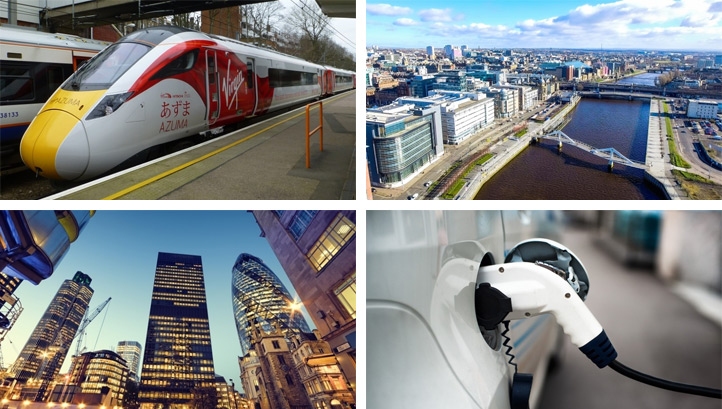The National Infrastructure Commission’s (NIC) chairman Sir John Armitt has called on Chancellor of the Exchequer Philip Hammond to make a “genuine commitment to change” through the upcoming National Infrastructure Strategy, in order to spur the transition to a low-carbon, climate-resilient economy.

The NIC is calling on the Treasury to devolve £43bn to cities for transport improvements by 2030
In a letter sent by Armitt to Hammond, publicly published today (13 May), the infrastructure expert urged the Treasury not to make “vague promises” around bettering the UK’s transport, energy and technology networks in a low-carbon, resource-efficient manner through the Strategy.
The Strategy is due to published to coincide with the autumn spending review and will outline the Government’s expectations for infrastructure funding and policy through to 2050 – the deadline by which the Committee On Climate Change (CCC) has recommended for the creation of a net-zero carbon economy.
Armitt’s letter sets out four tests for the strategy, which he claims it must meet “at the minimum”. They are for the Government to take a long-term stance on infrastructure-related funding and policies; to set clear goals with specific plans; to invest 1.2% of GDP per year in infrastructure and to “genuinely commit to change”.
In order for the fourth test to be met, Armitt claims that the Government must seek recommendations on how to devolve funding for urban transport projects to cities, to spur the creation of targeted solutions for specific problems. He urges also the creation of similarly “fundamental” policy shifts across the nuclear power, flood prevention, autonomous transport and electric vehicle (EV) sectors.
“[The National Infrastructure Strategy] should set out lasting plans around which a consensus can be forged, provide certainty for investors and reduce costs, and cement the UK’s position as a world leader in this field,” the letter states.
“But if instead the strategy only pays lip service to our work, restating existing policy and offering vague promises in addition, it is likely to have the opposite effect.”
The NIC’s 2018 assessment of national infrastructure led the body to conclude that policies and spending should be altered in a way which would ensure that half of the UK’s power needs are met by domestic renewables by 2030. Currently, around 9.5% of all power produced in the UK is accounted for by independent, commercial-scale renewable power arrays.
The assessment additionally recommended that the Treasury should devolve £43bn to regions and cities for transport improvements by the same deadline and urged Ministers to act as if 100% of new vehicle sales will be electric by 2030. At present, the Government’s deadline for banning the sale of new petrol and diesel cars is set for 2040, which critics claim is too late to spur the EV market and to comply with legally binding climate targets. It has previously refused to move the date but may have to if it adopts the CCC’s advice.
The EV infrastructure gap
Armitt’s letter comes shortly after the Confederation of British Industry’s (CBI) director-general Carolyn Fairbairn gave a speech in which she urged Ministers to clarify the Government’s approach to developing infrastructure for EV charging.
She warned policymakers that unless the process for building the necessary infrastructure for charging points and grid improvements is made easier for stakeholders across the EV sector, such improvements will be made in “patches”, at a slower pace than they need to be if the UK is to meet its fourth and fifth carbon budgets.
“Today, if you want to install an electric vehicle charge point, you must deal with multiple regulators and agencies – Ofgem, the local planning authority, the National Grid – each of which has different standards, different levels of responsiveness, operating under different legislation,” Fairbairn said. “It’s a complex picture and it’s already having consequences.”
As the EV revolution continues to gather pace, research has continued to suggest that the UK’s electric transport ambitions could be held back by a lack of suitable charging infrastructure.
In a recent survey of corporate fleet owners by The Climate Group’s EV100 team, seven out of ten respondents cited a lack of charging infrastructure as their biggest concern, with the upfront cost of EVs cited as the second most common challenge. Similarly, studies from the likes of PwC, the Department for Transport (DfT) and Bloomberg New Energy Finance (Bloomberg NEF) have identified a lack of investment into charging and energy infrastructure as a deterrent for motorists wishing to switch to EVs.
Sarah George
